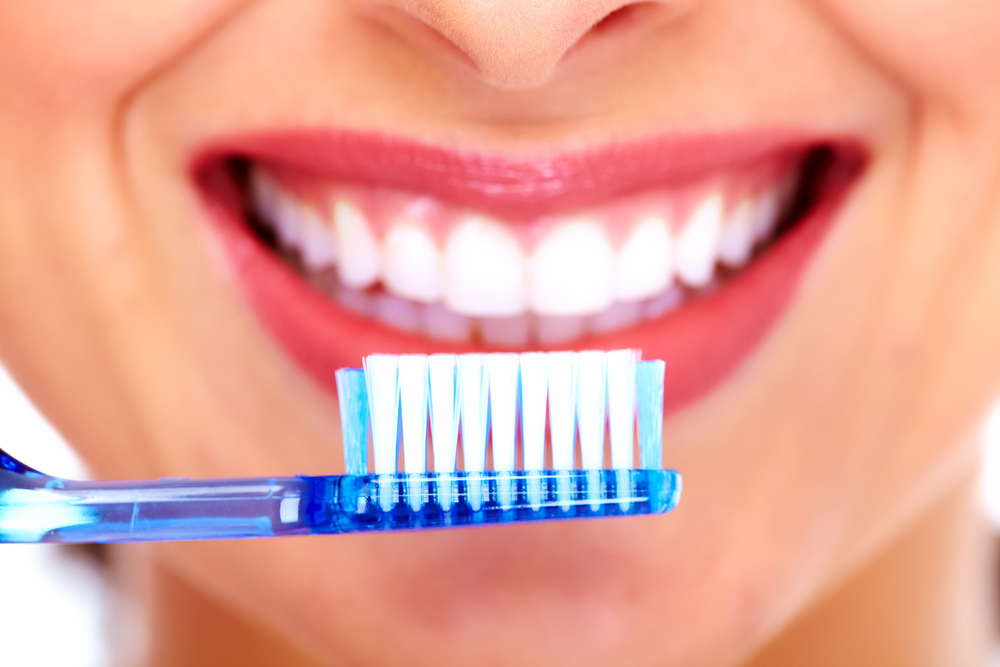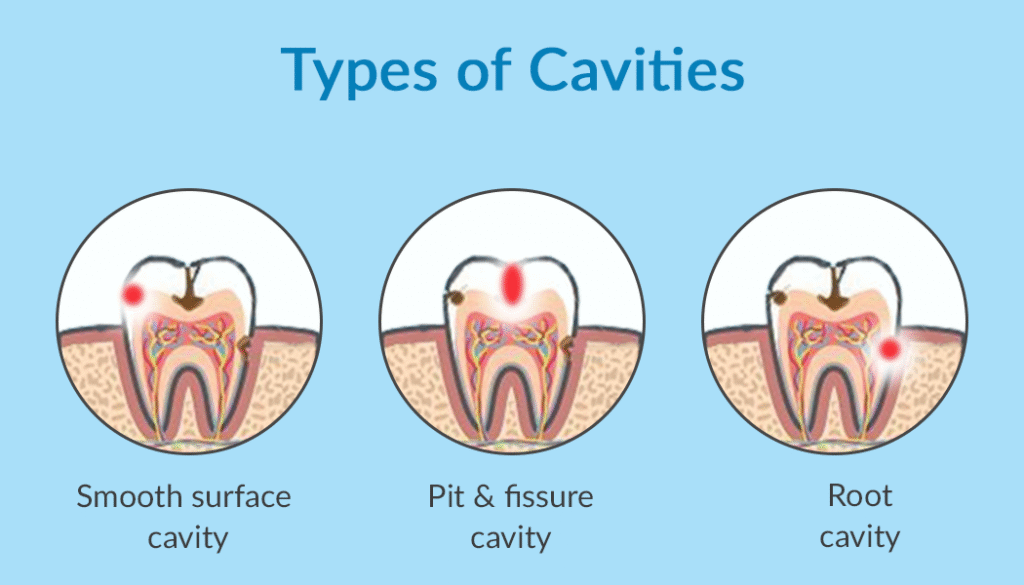
Preventing cavities without fluoride focuses on maintaining strong oral hygiene, balanced nutrition, and using proven natural alternatives like hydroxyapatite, xylitol, and probiotics. These strengthen enamel, reduce bacteria, and protect teeth effectively when combined with consistent dental care and healthy lifestyle habits.
Key Takeaways
- Brush twice daily with fluoride-free toothpaste containing hydroxyapatite or xylitol.
- Floss and rinse with natural antibacterials like green tea, neem, or clove oil.
- Limit sugar, acidic, and sticky foods to reduce acid attacks.
- Eat calcium and vitamin D-rich foods to support enamel remineralization.
- Stay hydrated and chew sugar-free gum to boost saliva production.
- Maintain regular dental checkups and consistent hygiene for long-term cavity prevention.
Understanding Cavities and Their Causes

A cavity, or dental caries, is permanent damage to the tooth surface caused by decay. This decay occurs when acids produced by harmful bacteria break down the tooth enamel.
- Bacteria and plaque: Harmful bacteria live on teeth, forming a sticky film called plaque. They consume sugars from food and produce acids that attack tooth enamel.
- Sugar and starches: Frequent consumption of sugary and starchy foods feeds bacteria, increasing acid production.
- Enamel breakdown: Over time, acids erode the enamel, creating holes or cavities in the teeth.
- Saliva’s role: Saliva helps neutralize acids and repair early enamel damage through natural remineralization.
Oral Hygiene Practices for Fluoride-Free Cavity Prevention
Effective oral hygiene is the foundation of preventing cavities without fluoride. Proper brushing, flossing, and rinsing methods remove plaque and reduce bacterial buildup.
- Brushing twice daily: Use a toothbrush with soft bristles and fluoride-free toothpaste containing beneficial ingredients like hydroxyapatite or xylitol. Brush for two minutes, covering all tooth surfaces.
- Correct brushing technique: Hold your brush at a 45-degree angle to the gums, using gentle circular motions. Avoid aggressive scrubbing, which can damage enamel and gums.
- Floss daily: Floss removes food particles and plaque between teeth, areas a toothbrush cannot reach.
- Natural mouth rinses: Rinse with antibacterial herbal teas such as green tea or mouthwashes containing neem or clove oil to reduce harmful bacteria.
- Infant and toddler care: For babies without teeth, clean gums daily with a soft cloth or finger brush to reduce bacteria buildup.
Dietary Strategies That Support Cavity Prevention Without Fluoride
Diet plays a powerful role in cavity prevention by influencing the oral environment. Managing what and how often you eat helps reduce acid attacks on teeth.
- Limit sugar intake: Reduce sugary snacks and beverages, which bacteria ferment into acid.
- Reduce snacking frequency: Frequent eating means constant acid attacks. Stick to regular meal times.
- Avoid acidic and sticky foods: Acidic beverages and sticky snacks cling to teeth and encourage decay.
- Eat calcium-rich foods: Dairy products, leafy greens, and almonds provide calcium and phosphate that support enamel strength.
- Vitamin D: Helps the body absorb minerals like calcium vital for healthy teeth.
- Stay hydrated: Drinking water, especially fluoridated or filtered, rinses away food particles and neutralizes acids.
- Chew sugar-free gum: Stimulates saliva flow, which protects and repairs enamel.
- Include antibacterial foods: Green tea, neem, and licorice have natural antimicrobial properties to reduce oral bacteria.
- Limit phytic acid: Found in some grains and legumes, it can reduce mineral absorption needed for enamel repair.
Natural and Alternative Remineralizing Agents
Besides fluoride, other substances can strengthen enamel and reduce cavity risk by promoting remineralization and fighting bacteria.
- Hydroxyapatite technology: This mineral, naturally found in enamel, is used in some toothpaste formulas to fill in microscopic enamel defects and rebuild tooth strength.
- Xylitol: A natural sugar alcohol that bacteria cannot ferment. Xylitol reduces plaque formation and cavity-causing bacteria.
- Herbal extracts: Licorice, green tea, and neem contain ingredients that inhibit bacterial growth and reduce acid production.
- Probiotics: Healthy bacteria introduced in oral care help balance the microbiome and suppress harmful bacteria.
- Oil pulling: Swishing natural oils like coconut oil may reduce harmful bacteria but should not replace brushing.
- Dental sealants: Thin protective coatings applied by dentists can shield tooth grooves from bacteria without fluoride.
Lifestyle and Regular Maintenance for Long-Term Cavity Prevention
Long-term cavity prevention depends on consistent care and healthy habits beyond brushing and diet.
- Hydration throughout the day: Dry mouth increases cavity risk. Drinking enough water maintains saliva production.
- Avoid constant snacking: Limit how often you eat to reduce acid attacks.
- Regular dental visits: Professional exams detect early decay and provide guidance for fluoride-free care.
- Address dry mouth issues: Medications, illnesses, and aging can reduce saliva. Seek treatment if dry mouth persists.
- Maintain oral hygiene consistency: Habits should be reinforced, especially for children learning proper care.
- Choose holistic dental care providers: Some dentists specialize in fluoride-free treatments and natural oral health.
Myths and Facts About Fluoride and Fluoride-Free Cavity Prevention
Understanding the truth about fluoride is essential for making informed decisions about cavity prevention. Many people have concerns or misunderstandings about fluoride, which can influence their choice to avoid it. Knowing facts behind these concerns and about alternatives helps support safe and effective oral care without fluoride.
Myth: Fluoride Is Toxic in Small Uses
This is a common worry, but in reality, fluoride is safe when used appropriately. The concern about toxicity usually comes from extremely high or accidental ingestion, which is rare in daily use. Fluoride in toothpaste or drinking water is present at levels carefully controlled by health authorities to maximize benefits and minimize risks. Small, regulated amounts help enamel strengthening without causing harmful effects.
Myth: Fluoride Causes Severe Health Issues
There have been claims linking fluoride to various health problems, but extensive scientific studies and health organizations worldwide support its safety in recommended doses. When applied through water fluoridation or dental products, fluoride shows no link to severe health conditions. Its benefits in reducing tooth decay have been conclusively proven over decades.
Fact: Cavity Prevention Without Fluoride Is Possible
Even though fluoride is effective, it is not the only method to prevent cavities. Natural alternatives like hydroxyapatite, a mineral naturally found in tooth enamel can promote remineralization, repairing early enamel damage. This shows that rebuilding and protecting teeth can happen without fluoride, using other scientifically supported substances.
Fact: Fluoride-Free Toothpastes Can Work but Need Proven Ingredients
Fluoride-free toothpastes are available, but not all provide the same cavity protection. To be effective, they must contain active ingredients with evidence of enamel repair and antibacterial action. Ingredients such as hydroxyapatite, xylitol, and certain natural antibacterials have been shown to support tooth health. Choosing fluoride-free toothpaste demands attention to its formula for meaningful cavity defense.
Myth: All Fluoride-Free Products Are Natural and Safe
Not all fluoride-free dental products are inherently natural or safe. Some may lack important active agents or contain additives that do not contribute to cavity prevention. The absence of fluoride does not automatically mean a product is better or healthier. Consumers must evaluate ingredients carefully, focusing on products tested for safety and effectiveness.
Facts:Fluoride Cannot Instantly Strengthen Teeth but Helps Over Time
Fluoride works primarily by reinforcing enamel gradually through repeated exposure. It does not provide immediate or overnight strengthening of teeth. While effective with consistency, fluoride’s benefits accumulate progressively, making daily oral care and exposure important for lasting results.
Conclusion
To prevent cavities without fluoride, focus on good oral hygiene using fluoride-free toothpaste with proven ingredients like hydroxyapatite and xylitol. Brush twice daily, floss regularly, and rinse with natural antibacterials. Limit sugar and acidic foods in your diet, eating calcium and vitamin D-rich foods to support enamel. Drink water and chew sugar-free gum to boost saliva. Natural remineralizers like probiotics and herbal extracts help protect teeth. Consistent hygiene, healthy eating, hydration, and dental check-ups are essential.
Althoughfluoride is proven safe and effective, its alternatives allow fluoride-free cavity prevention through a comprehensive, natural approach.
FAQs
Is fluoride safe to use in toothpaste and drinking water?
Yes, fluoride is safe when used in recommended amounts for dental health. It helps strengthen enamel and prevent cavities.
Can cavities be prevented without fluoride?
Yes, cavities can be prevented using fluoride alternatives like hydroxyapatite, xylitol, good oral hygiene, and a healthy diet.
Are fluoride-free toothpastes effective?
Fluoride-free toothpastes can be effective if they contain proven active ingredients such as hydroxyapatite or xylitol.
Does fluoride cause harmful health effects?
Scientific evidence shows fluoride is not harmful at recommended levels. Severe health issues are linked only to excessive exposure.
Can fluoride-free products be trusted to protect teeth?
Only fluoride-free products with tested active ingredients offer effective cavity protection. Not all are equally reliable.
How does fluoride strengthen teeth?
Fluoride helps enamel remineralization over time, making teeth more resistant to acid attacks by bacteria.
Are natural ingredients like neem or green tea effective against cavities?
These have antibacterial properties that can reduce harmful oral bacteria and support cavity prevention when combined with good hygiene.
Is oil pulling a good alternative to fluoride toothpaste?
Oil pulling may reduce bacteria but should not replace brushing and flossing for cavity prevention.
Does drinking fluoridated water increase cavity resistance?
Yes, fluoridated water helps reduce cavities across populations by providing low-level fluoride exposure consistently.
Can diet alone prevent cavities without fluoride?
Diet plays a critical role but works best combined with regular cleaning and other preventive measures.
Reference
- Centers for Disease Control and Prevention (CDC) – Caring for Your Mouth Without Fluoride
https://www.cdc.gov/oral-health/prevention/caring-for-your-mouth-when-you-live-in-an-area-without-fluoridated-water.html - University of Illinois at Chicago Dentistry – 5 Amazingly Simple Things You Can Do to Prevent Cavities
https://dentistry.uic.edu/news-stories/5-amazingly-simple-things-you-can-do-to-prevent-cavities/ - Healthline – How to Get Rid of Cavities: 6 Home Remedies
https://www.healthline.com/health/dental-and-oral-health/how-to-get-rid-of-cavities - Pure Holistic Dental – Natural Cavity Prevention Tips Without Fluoride
https://www.pureholisticdentist.com/natural-cavity-prevention-tips-without-fluoride/ - Colgate – How to Prevent Cavities: 7 Smart Oral Care Tips
https://www.colgate.com/en-ph/oral-health/cavities/how-to-prevent-cavitites-in-three-important-steps - Mayo Clinic – Cavities and Tooth Decay: Symptoms and Causes
https://www.mayoclinic.org/diseases-conditions/cavities/symptoms-causes/syc-20352892 - Medical News Today – How to Get Rid of Cavities: Home Remedies and Prevention
https://www.medicalnewstoday.com/articles/321259
Autum Harkins is a CNS with an MS in Clinical Nutrition from Maryland University of Integrative Health (2017) and 8 years in integrative clinics. She develops individualized protocols for deficiencies, digestive health, and women’s wellness, prioritizing third-party-tested supplements. Autum contributes to case series and webinars and mentors practitioners on lab interpretation. Credentials: CNS Board (ANA/BCNS) number, state nutrition licensure where applicable, and professional memberships with links.

